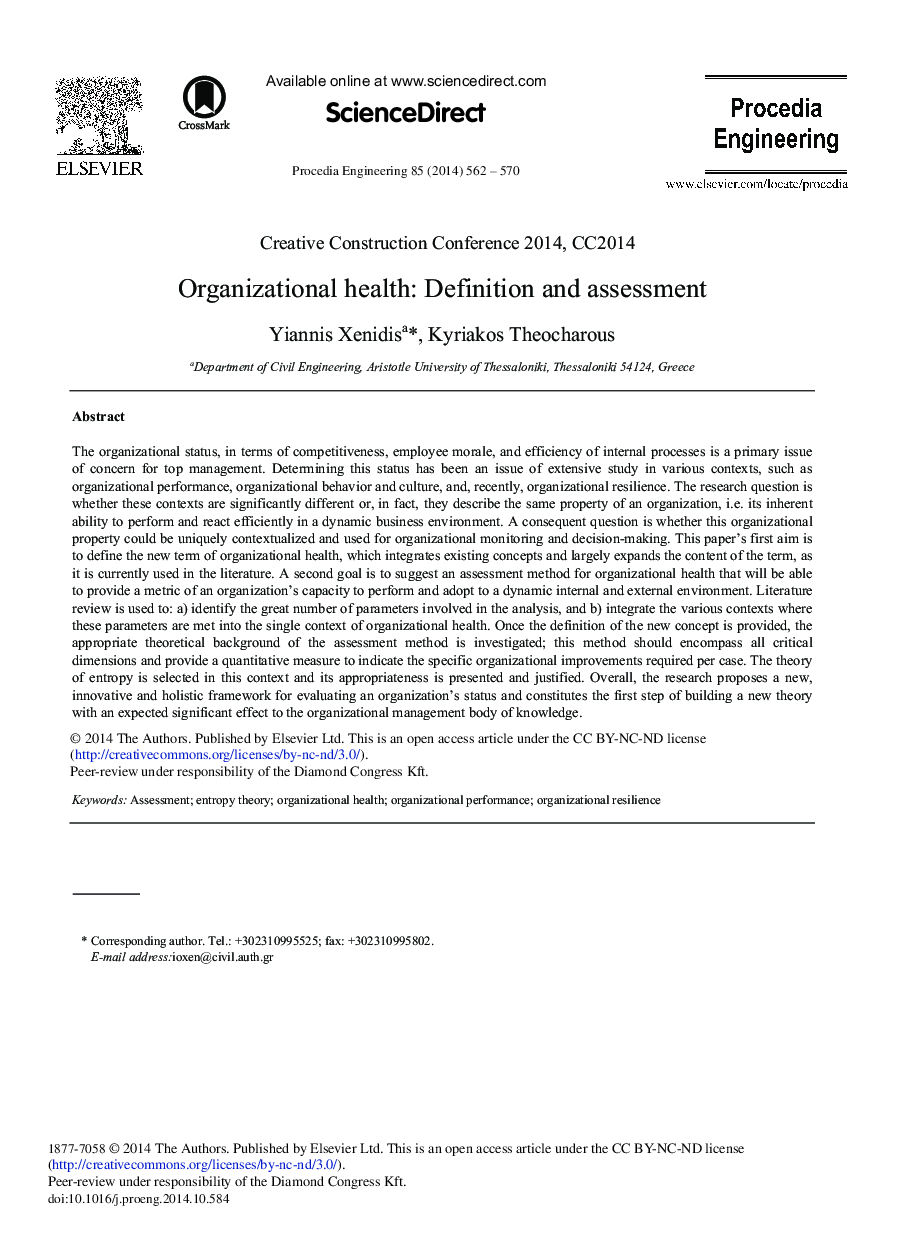| Article ID | Journal | Published Year | Pages | File Type |
|---|---|---|---|---|
| 858487 | Procedia Engineering | 2014 | 9 Pages |
The organizational status, in terms of competitiveness, employee morale, and efficiency of internal processes is a primary issue of concern for top management. Determining this status has been an issue of extensive study in various contexts, such as organizational performance, organizational behavior and culture, and, recently, organizational resilience. The research question is whether these contexts are significantly different or, in fact, they describe the same property of an organization, i.e. its inherent ability to perform and react efficiently in a dynamic business environment. A consequent question is whether this organizational property could be uniquely contextualized and used for organizational monitoring and decision-making. This paper's first aim is to define the new term of organizational health, which integrates existing concepts and largely expands the content of the term, as it is currently used in the literature. A second goal is to suggest an assessment method for organizational health that will be able to provide a metric of an organization's capacity to perform and adopt to a dynamic internal and external environment. Literature review is used to: a) identify the great number of parameters involved in the analysis, and b) integrate the various contexts where these parameters are met into the single context of organizational health. Once the definition of the new concept is provided, the appropriate theoretical background of the assessment method is investigated; this method should encompass all critical dimensions and provide a quantitative measure to indicate the specific organizational improvements required per case. The theory of entropy is selected in this context and its appropriateness is presented and justified. Overall, the research proposes a new, innovative and holistic framework for evaluating an organization's status and constitutes the first step of building a new theory with an expected significant effect to the organizational management body of knowledge.
